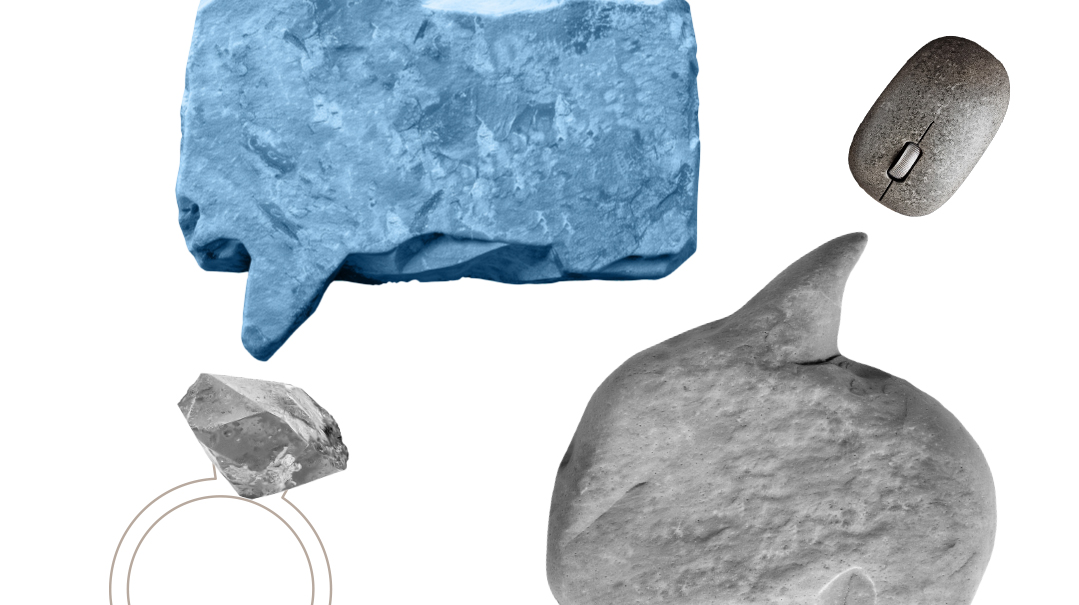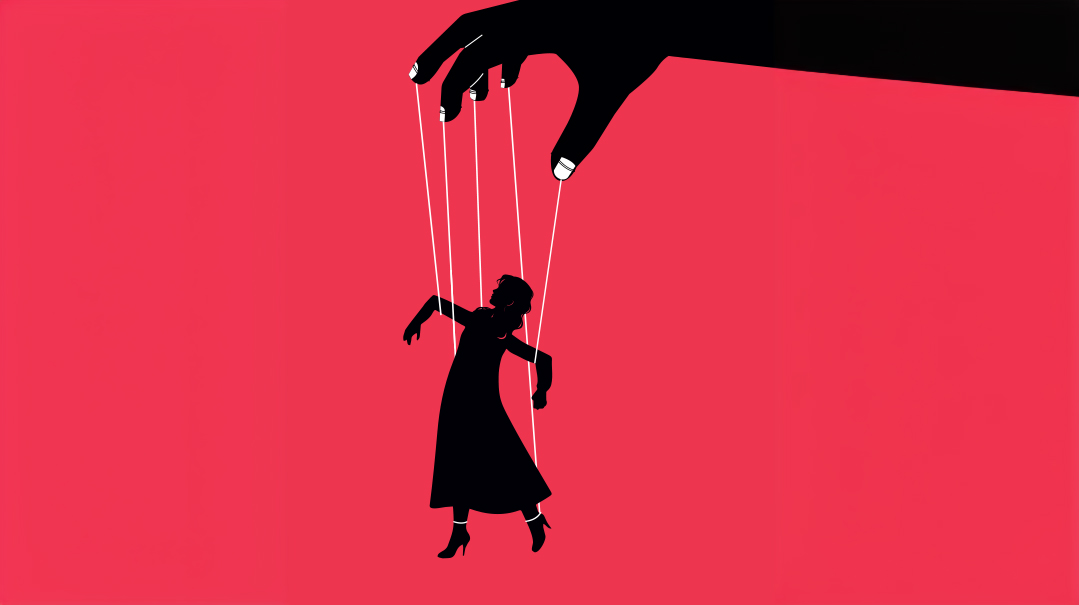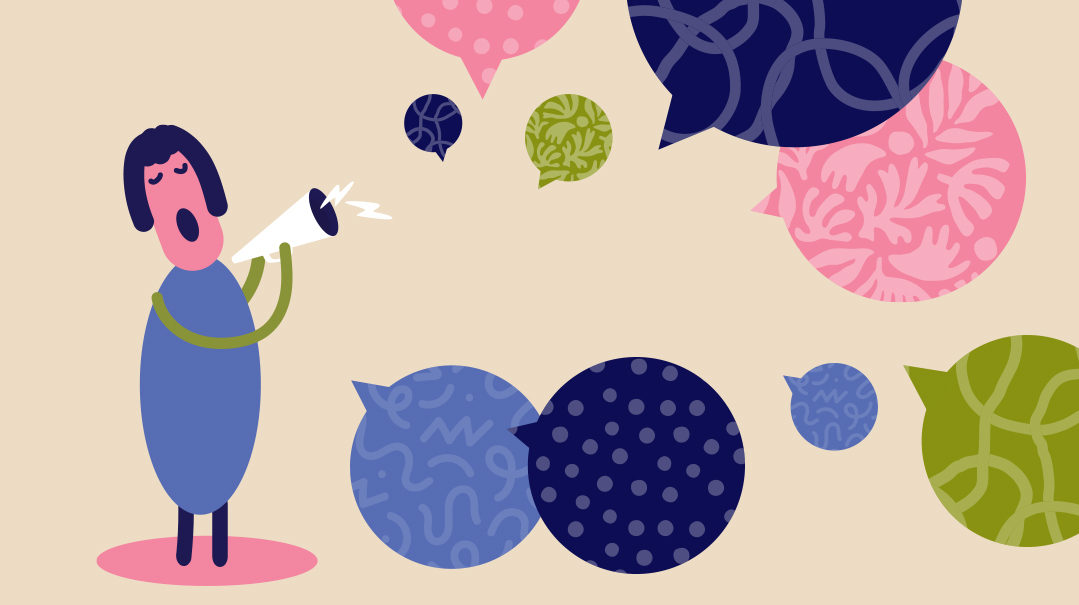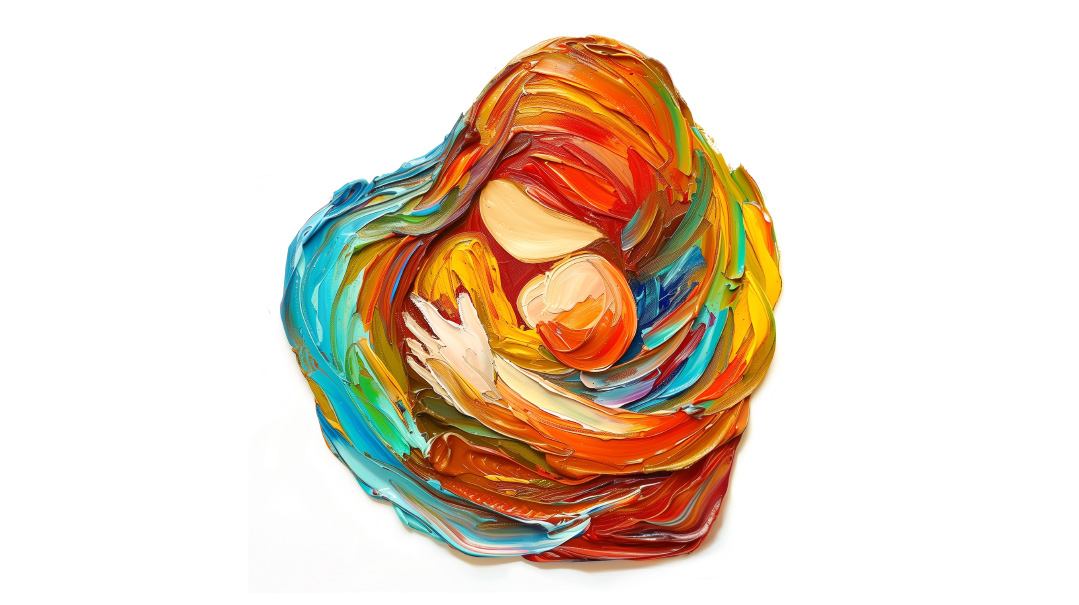At Rest
| October 19, 2021Shemittah has begun. Three farmers’ wives share stories of soul and sacrifice
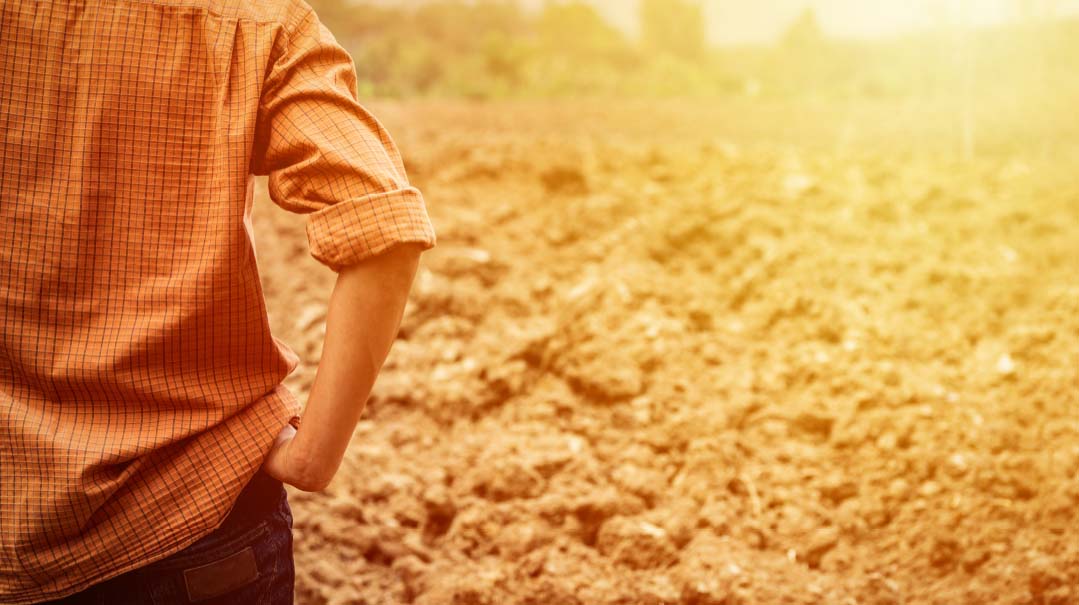
Ilana Tvig from Moshav Azariah
My husband Doron is a third-generation farmer. Our livelihood is vegetable growing, mostly cucumbers, eggplants, tomatoes, cherry tomatoes, and melons. We also have an orchard and a vineyard.
Over the years, we always relied on heter mechirah — selling our land to a non-Jew and farming it as hired workers, then receiving it back at the end of shemittah — similar to the way we sell chometz before Pesach. But last shemittah, we decided to observe the mitzvah fully, leaving it to lie fallow and making all the produce hefker, free for anyone to take. We’re keeping it this year, too.
Last shemittah, we didn’t prepare in advance. I only thought about keeping it fully in the sixth year; I wanted Doron to have a break — farming is hard, physical labor — and I thought this would be a nice opportunity for him to dedicate time to learning Torah. I thought of Shabbos, how we rest up from the week, and how wonderful it would be if Doron had an entire year to do that. I knew it wouldn’t be as romantic as it sounds — I had no idea how we’d support ourselves financially, or how Doron would fill his days the whole year — but I still pushed for it.
Doron gave it some serious thought. Ultimately, he decided we would rely on heter mechirah for some of our crops, since we’d just spent a lot of money building new greenhouses. We committed to keeping the full halachah in the open fields. The shemittah year started, and between Rosh Hashanah and Yom Kippur, we planted 25,000 eggplant seedlings in the greenhouses.
But then we spoke to Keren Hashvi’is. It became clear that we couldn’t have it both ways, and we had to make a decision: either arrange a heter mechirah for all our property or observe every halachah. It was hard, but we decided not to rely on a heter mechirah at all, and to observe shemittah down to the last detail.
But what about our eggplants?
Anything planted after the beginning of the seventh year is assur for anyone to use. A whole committee of rabbanim came to our greenhouses. They stood around the eggplants in their hats and jackets in 120-degree temperatures, deliberating.
Eventually, they gave us their verdict: Don’t water the eggplants. In that heat, without water, they would all die in a few days.
Except that they didn’t. We don’t know how, but despite the heat and lack of water, the seedlings started sprouting. Within a few weeks they’d started blossoming. We were very worried, because we knew that very soon the eggplants would start growing. Would we be able to pass that test?
Doron decided to put poison in the irrigation system. Within a few hours, our beautiful seedlings had shriveled up and died. It was a huge nisayon, and the psychological toll was devastating. Our foreign workers walked around, heads hanging low in shock. They didn’t understand how we could deliberately destroy something we’d invested so much in.
The months before shemittah are filled with pressure and fear. I worry about the emotional impact on Doron. I know how tied he is to his farming. He invests body and soul in the fields and greenhouses — and then comes an entire year that he’s completely cut off from it.
Last shemittah, we didn’t fully know what we were embarking on. But then we quickly realized what the term “gibborei koach” means. Observing shemittah takes real gevurah, every day. Every time it rains, every time you see a neighbor plowing or planting, every time your hands itch to grab the keys and run over to the greenhouse.
It’s so hard to see the fields go dry and overrun with weeds. It runs counter to your nature. You have acres upon acres of empty fields, you have withered seedlings calling out to you to water them. You’ve done the work daily for six years — and all of a sudden everything stops.
Before last shemittah, because it was a last-minute decision, we were left with many plots full of produce we hadn’t yet harvested and sold to the markets, so it all became hefker, and we lost a lot of potential income. This shemittah, we prepared more thoroughly — both financially and in terms of calculating timing. Now, most of the plots are already turned over, so that after shemittah, we’ll be able to start planting almost immediately.
During shemittah itself, we give city dwellers tours of the farm. We also work with Rav Efrati’s beis medrash for halachos teluyos ba’Artez, so quite a crowd comes from there. When you work in agriculture, you live mitzvos such as shemittah, orlah, leket and terumos u’maasros, which most people don’t experience. When people come to us and see farm life and everything it involves from up close, abstract concepts they’ve learned about their entire lives become real. They see what keeping shemittah entails, the journey a cucumber makes before it ends up in a salad, the meaning of the melachah of zoreh, how the straw is separated from the chaff. (We also have a petting zoo, which shows people the concepts of split hooves and chewing the cud.)
Elul at the end of a shemittah year is very different from Elul of any other year. We feel an enormous sense of pride and accomplishment — like we’ve just run a marathon. But the parnassah challenges of shemittah don’t end with the year. We need to take stock of your financial situation and think hard about how to repay the debts we’ve accrued.
When Doron gets back to work in the beginning of the next year, he has to go through an entire process of plowing, fertilizing, irrigating, and planting. Even the fastest growing vegetable — the cucumber, which grows in three weeks — only yields dividends over a month later. The first income rolls in only in mid-Cheshvan. And let’s not even talk about this shemittah, which is a leap year — an extra month!
How do we actually make it during shemittah? We’ve never waited for miracles, though we’ve had a few. Keren Hashvi’is has really helped us, financially and morally. We’ve also had help from people who come here to see what shemittah entails. We’ve received many emotional letters from people who visited our yishuv, and those gave us tremendous strength and inspiration.
At the end of the last shemittah year, there was a huge procession in Bnei Brak. Chazon Ish St. was closed down. Well over 100,000 people were there. They drove tractors down the street decorated with signs commending the “gibborei koach.” I don’t have words to describe how meaningful this was.
Harav Chaim Kanievsky shlita said that we have the power to give brachos, and after last shemittah, some of the greatest rabbanim in Israel and the world came to us asking for brachos. Rav Chaim explained that just as you retain the title “Dr.” for your entire life once you’ve completed your degree, so too the title “gibborei koach” is ours forever, not just during shemittah.
At every hadlakas neiros, I keep in mind the dozens of Jews who’ve given us their names to daven for, and I hope that in the merit of our gevurah, our tefillos will ascend straight to Heaven.
There are so few farmers in Israel who have the ability to keep shemittah, and we feel blessed to be among them.
Keren Koch from Yishuv Tekumah
The previous shemittah seven years ago was the first one we kept. Our son turned bar mitzvah then, and he was much more frum than we were. He asked us to keep shemittah fully, down to every detail. We didn’t want to lose him or make light of what was important to him, so we decided to take this huge step in his direction.
Ultimately, my husband, Avichai, made the decision. For him, farming is a full-time job; I only help him in my free time. I’m a teacher, so keeping shemittah wouldn’t pull the rug from under my feet. For Avichai though, it’s everything. He’s so tied to the soil; he’s in the fields morning, afternoon, and evening. I was so worried; I knew it would be a huge challenge for him to just leave the fields and watch them wilt.
I thought that maybe we should just pack our bags and leave, so we wouldn’t have to see the land lying fallow. We decided to go on a year of shlichut for the Jewish Agency. I taught on behalf of the Jewish Agency, and Avichai also found a job. We lived abroad for the entire year, thinking every day of what we’d left behind, of the beautiful, well-kept fields now choked with weeds.
This time, we didn’t think twice about keeping shemittah. I’ve heard many people say that the second shemittah is harder than the first, but for me it’s the opposite. We entered this shemittah with emunah, knowing that we can rely on Hashem for everything to work out.
Who knows better than a mother the role of hishtadlut in relation to the result? In chinuch, you sometimes run into difficulties that reduce you to despair. You did everything for your child; what more can you do? That’s when you raise your eyes to Shamayim, and realize that there’s another Partner in this venture Who’s really running things. There comes a point when you’ve done your utmost and the rest is up to Him.
That’s how I feel about parnassah as well. Sometimes it feels like we’re the ones running This World, and we try harder and harder to increase our income. And then comes the shemittah year, or any other minor crisis, and we realize that not everything is in our hands.
My parnassah is also often uncertain: I teach at a hospital, where my students are hospitalized children. I never know exactly how many hours of work I’ll have, as it depends on how many kids are hospitalized at any given time, and whether they’re feeling up to learning.
But we know that Hashem won’t desert us. We aren’t expecting miracles to make things easy for us, but we’re full of emunah; the promised brachah will come eventually.
When we finished our shlichut at the end of last shemittah, we went back to Israel and drove homeward, trying to keep our minds off of what awaited us there.
It was worse than we’d imagined. Everything was dead, neglected. The rehabilitation work was long and hard.
In addition to everything, we live seven kilometers from the Gaza Strip. The wars were always tough, and Qassam rockets frequently damage our greenhouses. This has financial consequences, and we’ve had to pick ourselves up again and again and go on. The combination of a complicated security situation with the shemittah year is a real challenge.
But Hashem worked miracles for us. One miracle came in the form of a man who made a deal with us to purchase a large quantity of organic produce, even though there were plenty of others who were eager to sell to him. “Your land is blessed,” he told us. “It yields two or three times the usual amount. There’s no natural explanation for that.”
Rachel from a moshav in the foothills of Harei Yehudah
I’m always gripped with anxiety before shemittah begins. I know and believe that Hashem has given us His blessing, but inside I’m gnawed by doubt.
We have an esrog farm, and before each shemittah I wonder, “What about our beautiful esrogim?”
We’ve had the zechus to fully observe four shemittah cycles already. On the last day before each shemittah, my husband and I take a walk in the orchard. We touch the esrogim, embrace the tree trunks, take mental photographs of their blooming beauty. I always cry. When we finish our walk, we leave the orchard — leaving the gate open. Another land plot in Eretz Yisrael is keeping shemittah.
Being an esrog farmer who keeps shemittah is an unparalleled challenge. The esrog tree is very fragile. Normally you can reinforce or graft a fragile fruit tree — but not an esrog tree; it makes them passul. The esrog’s worst enemies are pests of various kinds, and we fight them bitterly. We watch every tree carefully and take care of each individual esrog. When you see a beautiful and mehudar esrog in the market, it’s at the end of a very long and labor-intensive process.
There’s a halachic debate about the esrog that I won’t get into here, but the upshot is that the dinim of shemittah apply in both the seventh and eighth year. And esrogim aren’t like tomatoes, in demand all year round; they have their moment in the sun during the chagim. Keeping shemittah means that we give up two entire years of parnassah — but we do it with love.
There’s also another issue. Because our orchards are hefker, on Erev Succos, hundreds of people come, hoping to pick a free esrog. For many people, it’s a rare opportunity to get a mehudar esrog. We’re glad to have them — we offer them water, and provide special scissors for the picking.
I know that the people coming are wonderful people, operating out of a desire for hiddur mitzvah, and I’m positive that no one deliberately causes damage, but it often happens. The esrog is a very delicate fruit. More than once, I’ve seen people climbing a tree to cut down one esrog and knocking down a few others and destroying the branches in the process. “Hey!” I want to yell at them. “Be careful with my esrogim, they’re delicate!”
We see a little kid stepping on the irrigation pipe, a man carelessly climbing on a branch and ruining months of work. It’s not easy at all; watching people’s carelessness is the hardest part of this mitzvah.
Our orchard has been a popular attraction over the years, and we always get troops of students coming to learn about the pri hadar grown here. Whenever schools and Talmudei Torah come here, I see the same look in the visitors’ eyes. They’re looking around for the jolly farmer in his cap and checkered bib and the good-natured and stout farmer’s wife, and they’re nowhere to be found. My husband wears a white shirt, I’m actually pretty slim, and I don’t always manage to be good-natured. I know the stereotypes and prejudices city people harbor toward us hillbilly farm folk and, yes, I’ll admit that some are true. But only some! It always cracks me up to hear a little kid pipe up, “Where’s your cow? Do you eat your cornflakes with its milk every morning?” And then we see his shock when he learns that we don’t have a single animal, just an esrog orchard. (Actually, I’m petrified of anything that walks on four legs!)
Shemittah is one of the times when an invisible line is drawn between us and the city people, because no one can understand what we go through, and how we live this situation every day. I’m not criticizing, I realize that everyone has their own concerns, but I sometimes feel a little lonely during shemittah. We’re forfeiting our parnassah, while most of Am Yisrael will serenely go about their lives with their steady jobs and every now and then say something about how the farmers are “gibborei koach.” We invite people into our home, into our private orchard, while the rest of Am Yisrael sit behind closed doors and only invite in guests when it’s convenient, on their own terms. We’re left with no real means of support for months and months, while people around us hurry from one task to another and experience an essentially normal year.
But we also have the zechus of being blessed with the special brachah of being called gibborei koach and gathering zechuyos that can’t be acquired any other way. I want people who don’t work the land to understand shemittah from closer up, so they can better appreciate what we’re doing.
You know that feeling at the end of the Seder night, when you tiredly sing “Chasal siddur Pesach k’hilchaso”? Who hasn’t felt that warm sensation? There were some tough weeks, you worked nonstop, but you did it!
The end of the shemittah year is much more powerful than that. We hold a big seudah, serving meat and wine, and we thank Hashem for the enormous mitzvah He’s given us. There are no words to describe the satisfaction and delight we feel. It was a huge challenge, and we still have to find a way to cover our budget deficit — but we did it!
(Originally featured in Family First, Issue 764)
Oops! We could not locate your form.

